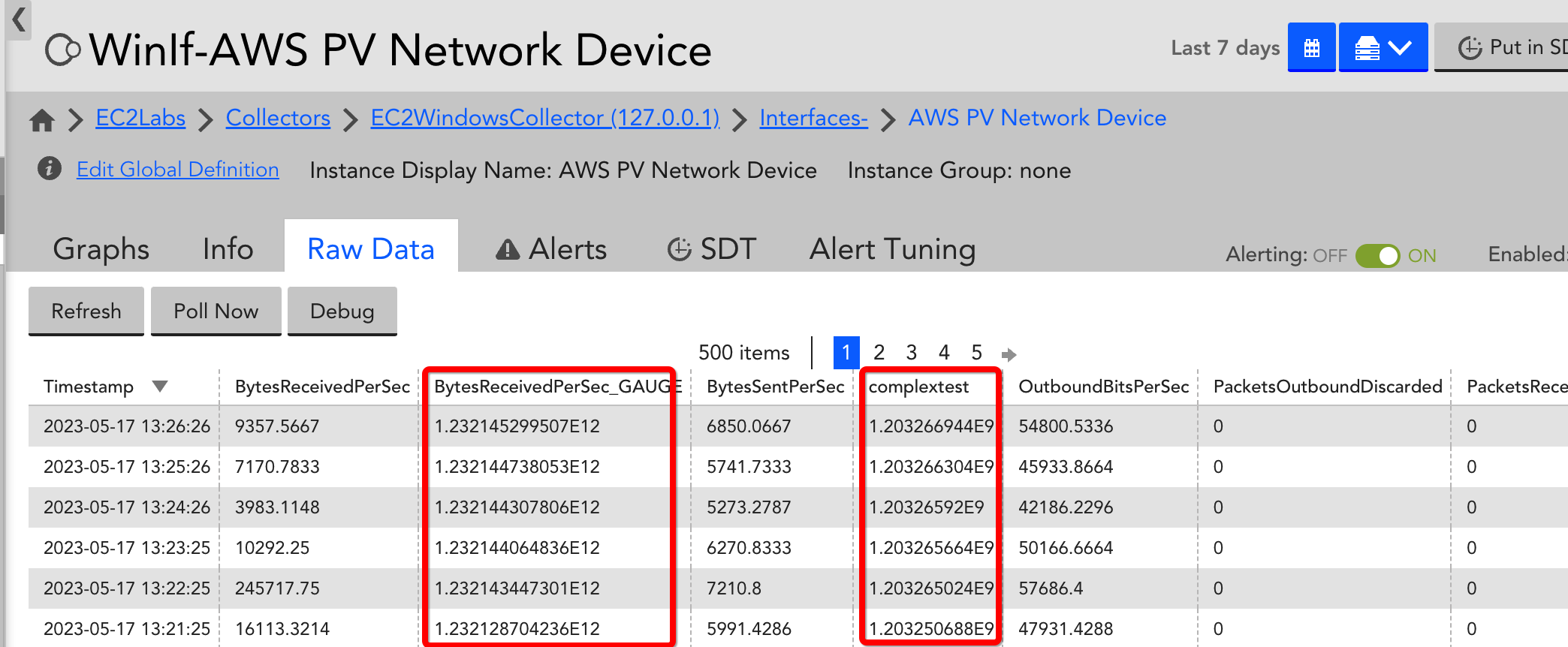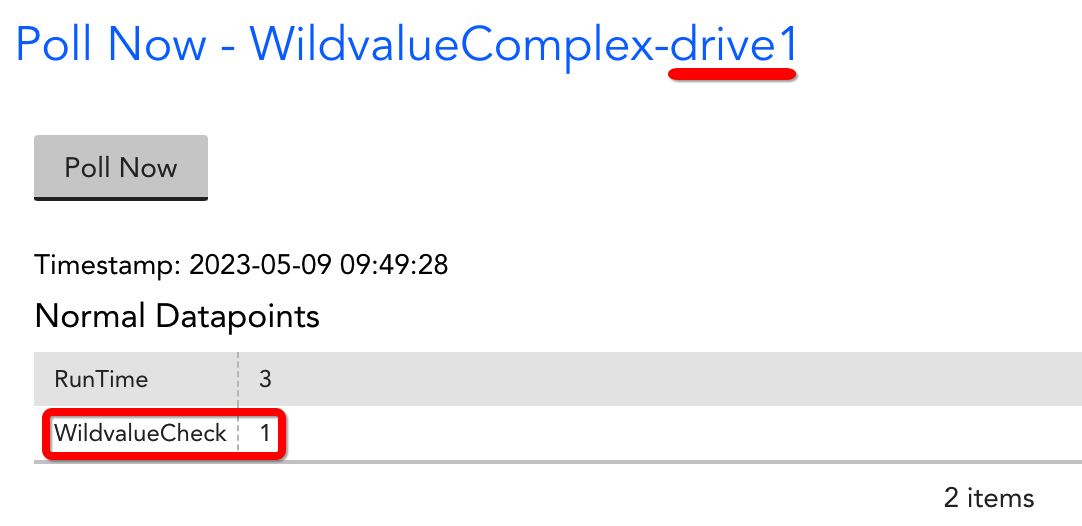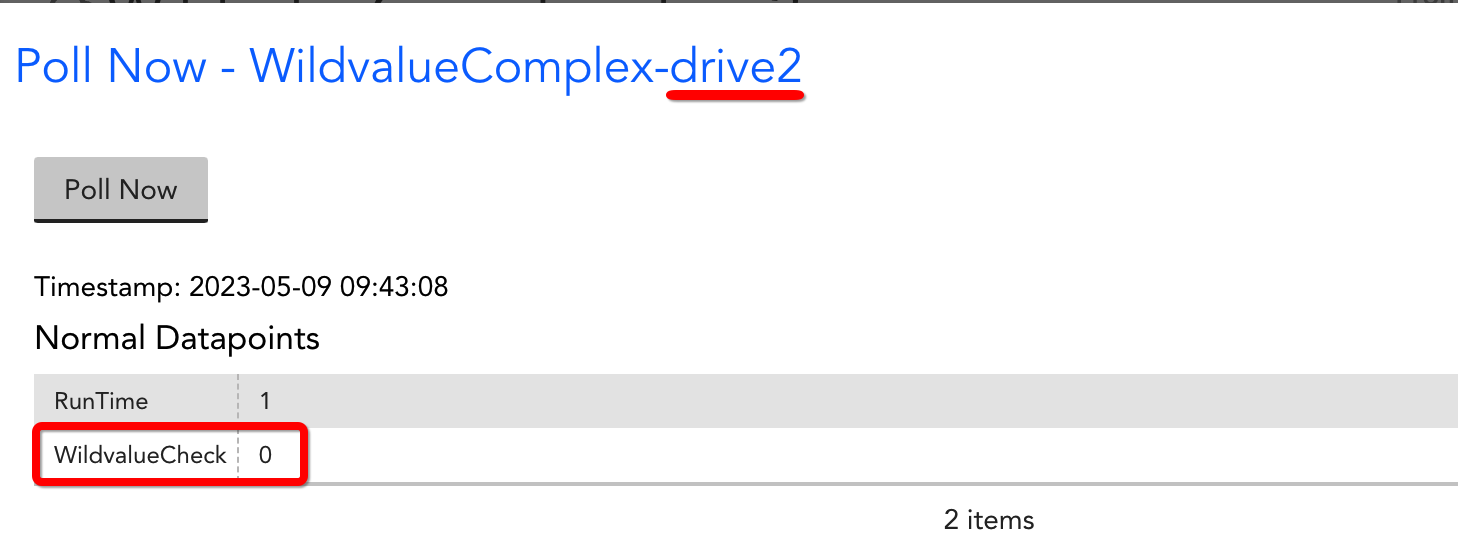JaredM Neophyte
Neophyte
3 years ago Neophyte
NeophyteCan token values be evaluated in a complex datapoint?
I would like to construct a conditional datapoint which returns a value if the instance WILDVALUE is equal to a match, otherwise a different value is returned.
Is it possible in expressions or groovy script complex datapoints to include tokens such as ##WILDVALUE##?
These are some examples which are not currently working:
eq(##WILDVALUE##,"C:\")
or
if(output[##WILDVALUE##]=="C:\") {
return(1);
} else {
return(0);
}



